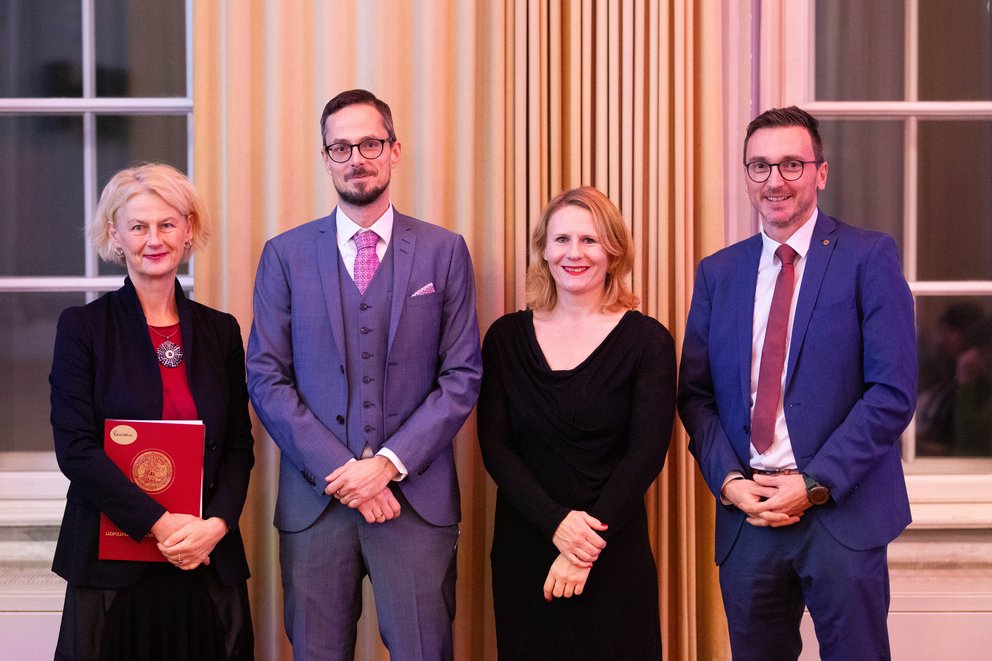Forschung im Fokus
Europäisches Forschungsprojekt zur Altenpflege/Langzeitpflege: assoz. Prof. Dr. Bernhard Weicht, Institut für Soziologie


In den nächsten drei Jahren forscht das Institut für Soziologie der Universität Innsbruck zu bestehenden und innovativen Strategien in der Langzeitpflege und den spezifischen Kontextfaktoren, die die nationalen Systeme prägen. Ziel ist die Herausarbeitung nationaler Besonderheiten und die Formulierung konkreter Vorschläge zur Verbesserung der Langzeitpflege sowohl für die Menschen mit Pflegebedarf als auch für die Pflegenden.
Mit der steigenden Lebenserwartung geht eine immer älter werdende Gesellschaft einher, die auf Betreuung und Pflege angewiesen sein wird, bei gleichbleibenden (oder sogar sinkenden Pflegekräfteangebot). Dass hier dringender Handlungsbedarf besteht, hat nicht zuletzt die COVID19-Pandemie deutlich gezeigt.
Im Rahmen des EU-Horizon-Projekts „LeTs Care – Learning from long-term care practices for the european care strategy“ untersuchen ForscherInnen der Universität Innsbruck die aktuellen Bedingungen und Strategien der Langzeitpflege in Österreich, um diese gemeinsam mit ForscherInnen aus Italien, Portugal, Spanien, den Niederlanden, Litauen und Dänemark zu vergleichen. Dabei ist es wichtig, die politischen und kulturellen Besonderheiten der einzelnen Länder zu berücksichtigen. So sind z.B. Dänemark und die Niederlande durch eine stark staatlich geförderte Pflegepolitik gekennzeichnet, während in anderen Ländern den Familien die Hauptverantwortlichkeit für Pflege zufällt. Um länderspezifische Unterschiede zu berücksichtigen und einen aussagekräftigen Vergleich der unterschiedlichen Pflegearrangements zu ermöglichen, werden gemeinsam nationale und lokale Kernmerkmale entwickelt und konkrete Fallstudien in den einzelnen Ländern durchgeführt. Dies wird durch die Analyse von bestehenden Dokumenten (politische Strategiepapiere, Forschungsberichte und Konzepte) und das Führen von Interviews mit ExpertInnen aus verschiedenen Bereichen (Politik, Pflegeorganisationen etc.) realisiert. Der Fokus liegt zudem auf der detaillierten Untersuchung der konkreten Strategien zur Restrukturierung formeller Dienste, zum Einsatz innovativer Technologien, zur Integration häuslicher Pflege und zur Verbesserung der Pflegearbeit. Dahinter steht die Frage, welche Modelle aus welchen Gründen funktionieren oder eben nicht. Neben dem Ländervergleich zielt das EU-Projekt auch darauf ab, ein neues Modell für politisches Lernen zu entwickeln. Über „best practice“-Empfehlungen hinaus sollen gemeinsam mit relevanten Stakeholdern und politischen EntscheidungsträgerInnen im Rahmen von Workshops Ideen diskutiert und neue „bedeutsame“ Instrumente entwickelt werden, die auf europäischer Ebene im Rahmen der EU Care Strategy Anwendung finden können.
Das Projektteam am Institut für Soziologie unter der Leitung von Assoz. Prof. Dr. Bernhard Weicht hat im vergangenen Monat seine Arbeit aufgenommen und wird in den nächsten vier Jahren die österreichischen Langzeitpflegestrategien untersuchen und für den europäischen Vergleich aufbereiten.
Link zum Projekt: https://ec.europa.eu/info/funding-tenders/opportunities/portal/screen/how-to-participate/org-details/944548268/project/101132701/program/43108390/details
Ansprechpartner: Bernhard Weicht & Lisa Waldenburger
Archiv bisheriger Beiträge
Antrittsvorlesungen: Univ.-Prof.in Dr.in Uta Rußmann und Univ.-Prof. Dr. Martin Senn

Von links nach rechts: Rektorin Veronika Sexl, Professor Martin Senn, Professorin Uta Rußmann und Dekan Franz Eder
Am 13.12.2023 haben Univ.-Prof. in Dr.in. Uta Rußmann, Institut für Medien, Gesellschaft und Kommunikation, sowie Univ.-Prof. Dr. Martin Senn, Institut für Politikwissenschaft, ihre Antrittsvorlesungen an der Fakultät für Soziale und Politische Wissenschaften abgehalten. Im ehrwürdigen Kaiser-Leopold Saal und unter Beisein von Rektorin Univ.-Prof.in Dr.in Veronika Sexl stellten die beiden neuberufenen Professor:innen Ihre aktuelle Forschung und die Planungen kommender Projekte vor.
Univ.-Prof.in Dr.in Uta Rußmann wurde mit März 2022 an die Universität auf die §98-Professur mit dem Titel "Medien,- und Kommunikationswissenschaft mit Schwerpunkt Demokratie" berufen.
Univ.-Prof. Dr. Martin Senn wurde mit Dezember 2022 an der Universität über eine §99(4)-Professur mit dem Titel "Politikwissenschaft mit dem Schwerpunkt Internationale Ordnungspolitik" gehoben.
Die Titel der Antrittsvorlesungen ließen spannende Einsichten in Forschung und Lehre der beiden Neuberufenen erwarten:
Social Media oder Bierzelt? Demokratie (er)leben.
Univ.-Prof.in Dr.in Uta Rußmann
Institut für Medien, Gesellschaft und Kommunikation, Universität Innsbruck
und
(Un)ordnung in der Weltpolitik
Univ.-Prof. Dr. Martin Senn
Institut für Politikwissenschaft, Universität Innsbruck
Beim anschließenden gemeinsamen Ausklang hatten die über 130 Zuhörer:innen die Möglichkeit, sich mit den beiden Professor:innen informell auszutauschen.
FWF-Projekt: Affluence and the gender gap in STEM study choices

Surprisingly, female underrepresentation in science, technology, engineering, and mathematics (STEM) majors is larger in more affluent societies. This Gender-Equality Paradox (GEP) is theoretically explained by individuals' greater economic opportunities for gendered self-expression. Yet, what the effect is of individual-level household affluence on men's and women's STEM study preferences and choices is largely unknown, let alone whether household affluence accounts for GEP. In addition, the literature did not investigate mediators of household affluence effects and variation in these effects across contexts.
We aim to fill the research gaps and address four research questions: (a) What is the effect of household affluence on the gender gap in STEM study preferences and choices?; (b) To what extent can household affluence account for the positive effect of societal affluence on this gender gap?; (c) How can we account for household affluence effects on the gender gap in STEM study preferences and choices?; (d) To what extent is the effect of household affluence on men's and women's STEM study preferences and choices moderated by contextual factors such as societal affluence, welfare provision, and socio-economic inequality? We test two contrasting expectations: first, household affluence increases the gender gap in STEM study preferences and choices through more gendered life goal preferences; second, household affluence reduces this gap due to more gender-egalitarian attitudes and ability patterns. We expect that household affluence has a smaller effect on (gendered) STEM study preferences and choices in more affluent and welfare-supportive settings. We answer the research questions with a series of quantitative studies using large-scale cross-national comparative data as well as longitudinal data from Germany.
Primary researchers involved
Wilfred Uunk (Principal investigator)
Founding
FWF, Principal Investigator Project (“Einzelprojekt”), P36789
Contact
UUNK, Wilfred, Univ.-Prof. Dr.
